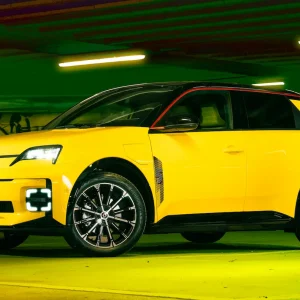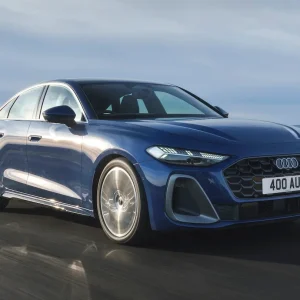You have to wonder why the Government is making plans for UK traffic to grow by nearly 30% in the next 20 years, when rising fuel prices have forced down road traffic. Something doesn’t add up…
Wrong numbers
You have to wonder why the Government is making plans for UK traffic to grow by nearly 30% in the next 20 years. Something doesn’t add up.
In the real world, rapid rises in global energy prices, coming on top of already high motoring taxes, are doing what you’d expect to UK motorists. According to official national traffic statistics, total car mileage in the UK fell by 3% in the final quarter of last year and that was even before oil first hit $100 a barrel. Many motorists today tell pollsters that they are cutting down on discretionary driving.
Traffic forecasts are clearly not keeping up (or is that down?) with reality, and that is not merely an academic question as far as fleets are concerned. Dire predictions of impending nationwide gridlock are regularly wheeled out by the Government to justify its costly and intrusive plans for road tolls and more congestion schemes.
So where does Whitehall get the idea that Mr and Mrs Average Citizen are intent on driving our road network to the brink of apocalypse, and that more and heavier carbon taxes are the only way to stop them?
Perhaps the answer lies in the Government’s peculiarly rose-tinted view of oil prices.
Britain’s transport planning is based on oil price projections made by the Department for Business Enterprise and Regulatory Reform. In February, with oil already costing more than $100 a barrel, BERR set forth its energy plans for the next decade and a half. They were built around a central projection that oil would reach, wait for it, $52 a barrel (in 2007 prices) in 2020.
The last time oil was at £52 a barrel, in 2005, Bank of England Governor Mervyn King’s “nice decade” was still in full swing, petrol cost only 85 pence per litre and car use was growing steadily. No wonder the Department for Transport sees substantial traffic growth ahead.
To be fair, BERR has since increased its price projection. On 9 May, with real world oil prices pressing upwards past $126 a barrel, the junior transport minister, Jim Fitzpatrick MP announced that plans for traffic and congestion are now being made based on oil costing $65 in 2010, rising to a dizzy $70 in 2020.
This is crazy. Few forecasters expect oil to fall below $100 again – and then not for long. Even oil majors foresee noticeable supply constraints by 2015 at the latest, leading to significantly higher pump prices than today.
Traffic congestion needs to be tackled. It’s a huge cost for businesses. But rising motoring costs are already doing some of the spadework for the Government. If it simply ploughs ahead in the apparent belief that cheap travel will last another 20 years, it risks wasting millions of pounds of taxpayers’ money on new roads, runways and road toll technology in order to meet demands that are less and less likely to materialise.
You would think that this is precisely the kind of challenge for which the Commission for Integrated Transport was created in 1998. The CfT’s impressive remit includes providing the Government with ‘blue-sky thinking on future strategic issues’.
What does it have to say about the Government’s transport plans? According to one of only two statements the CfT has put out this year – commenting on the Budget‘s transport measures – it thinks that they are either good (more motoring taxes) or very good indeed (bringing forward road pricing).
Whatever happened to joined up Government?





